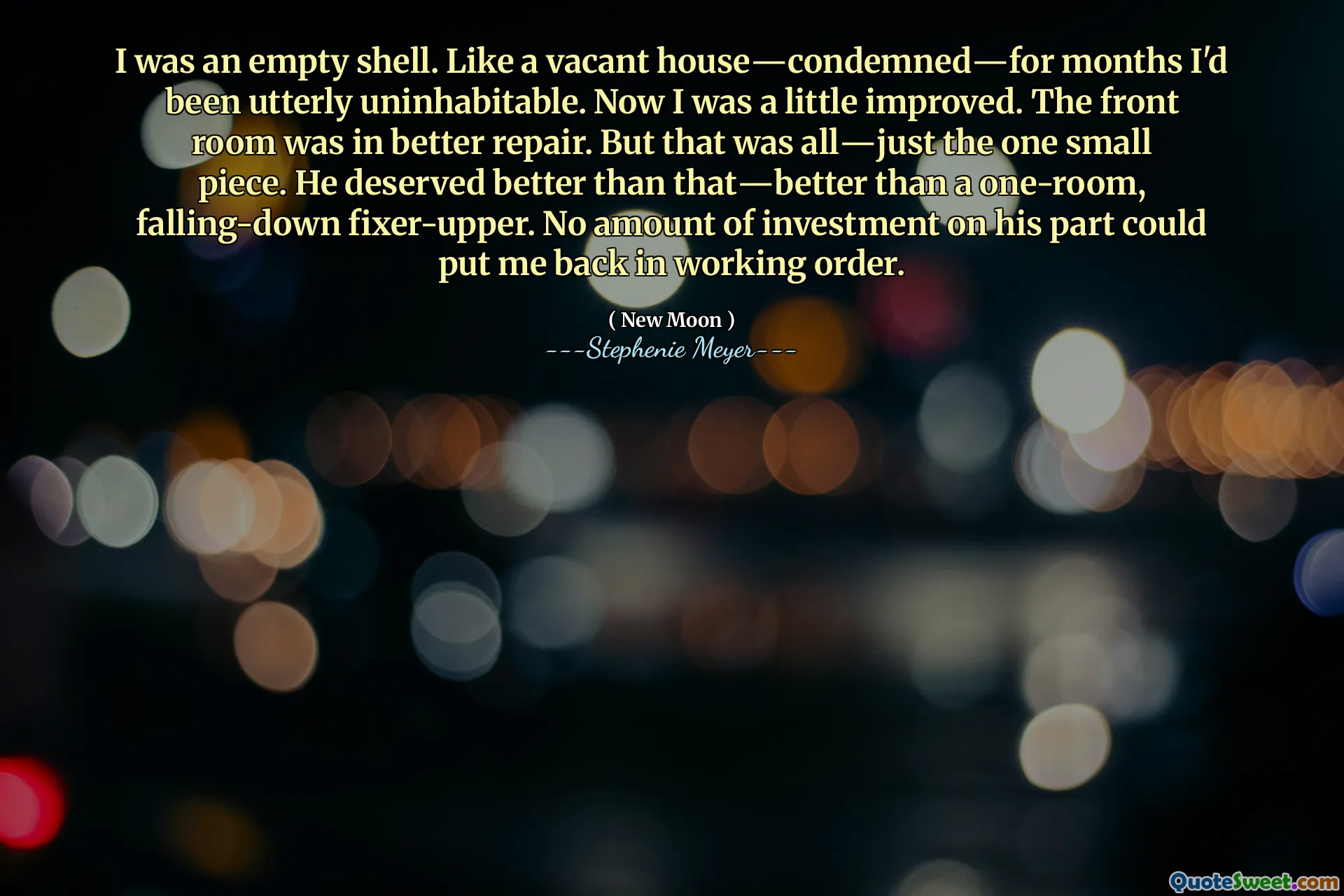
I was an empty shell. Like a vacant house―condemned―for months I'd been utterly uninhabitable. Now I was a little improved. The front room was in better repair. But that was all―just the one small piece. He deserved better than that―better than a one-room, falling-down fixer-upper. No amount of investment on his part could put me back in working order.
The narrator reflects on their emotional state, comparing themselves to a deserted and dilapidated house that has been abandoned for a long time. They describe feeling hollow and unlivable, highlighting a sense of neglect and deterioration. Despite some improvements, these changes are minimal, suggesting an ongoing struggle with their inner turmoil.
The narrator acknowledges that their current condition is inadequate for someone deserving of more. They realize that no matter how much effort or investment another person might make, it cannot restore them to a fully functional state. This metaphor emphasizes their deep feelings of worthlessness and the complexity of their emotional journey.





